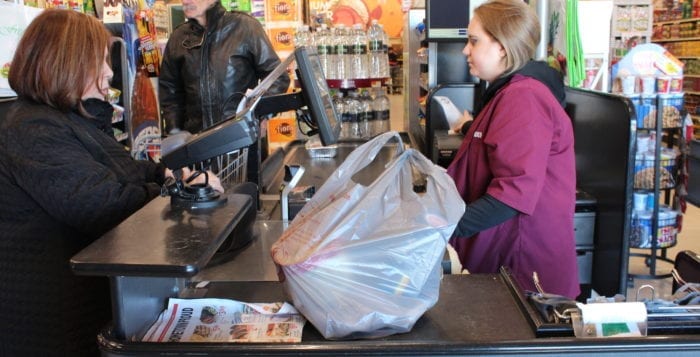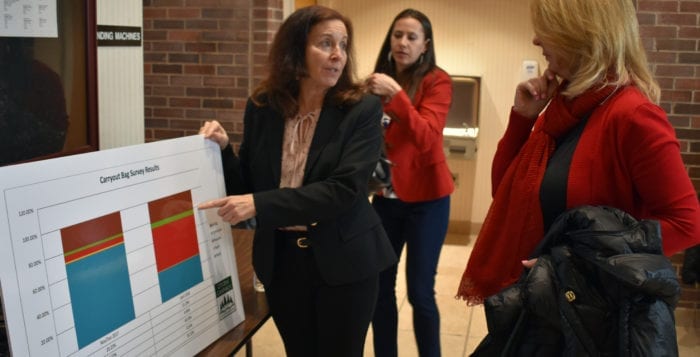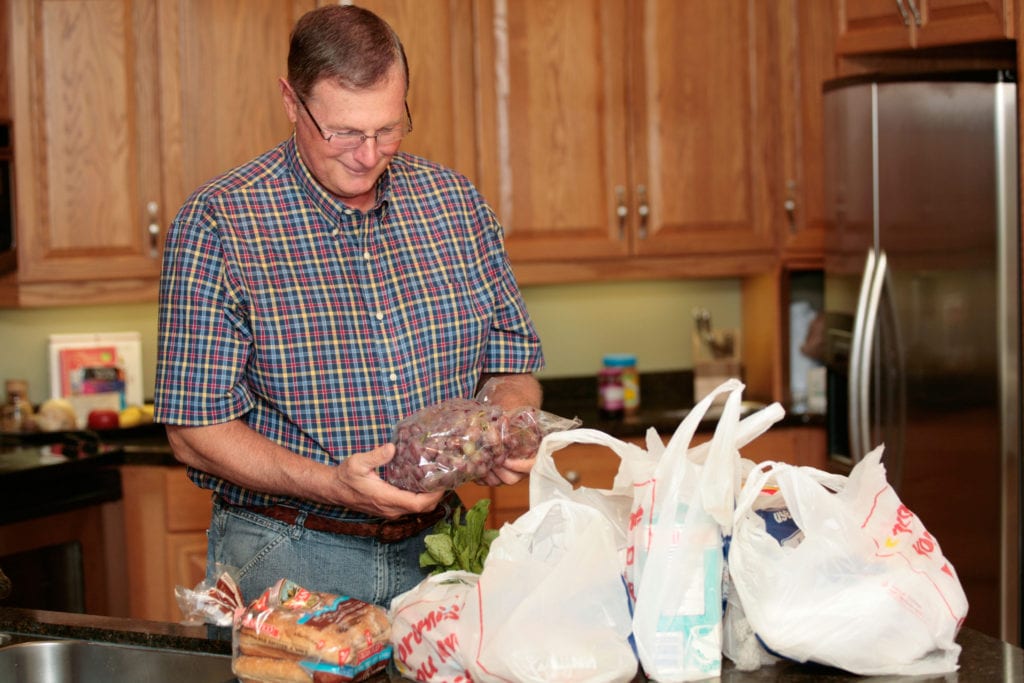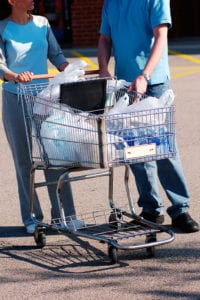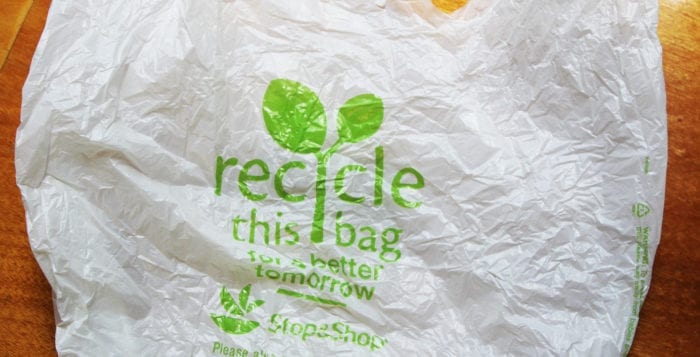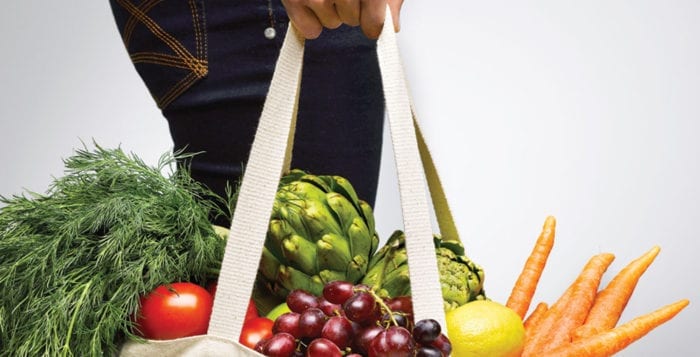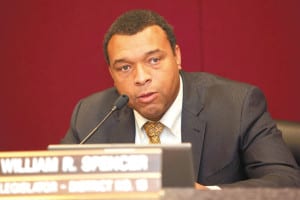A small fee on plastic bags in Suffolk County has made a very big impact on usage, according to an environmental advocacy group.
Beginning in January 2018, a 5-cent tax on plastic bags from retail stores took effect across Suffolk County with a stated goal to reduce bag waste and encourage shoppers to use reusable bags. County officials alongside environmental advocacy groups and educators announced the new law has worked as intended at a press conference March 21.
According to the one-year effectiveness report, Suffolk County is using approximately 1.1 billion less plastic bags compared to previous years. Other key highlights include 41 percent less plastic bag litter on beaches and plastic and paper bag use at stores has been reduced by over 80 percent.
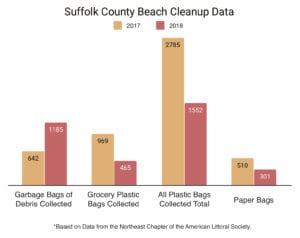
“We have made a difference, right here in Suffolk County,” Legislator William “Doc” Spencer (D-Centerport) said.
Adrienne Esposito, executive director of the Citizens Campaign for the Environment who presented the report’s findings, said the bill has made a real difference.
“This legislation has changed public behavior — that was the goal,” she said.
The report showed more members of the public bring their own reusable bags when shopping, while some forgo bags entirely. Overall much less plastic bags were
being used.
Esposito also mentioned that the data collected in the report is being cited across the nation as other municipalities try to promote similar plastic bag bans and fees.
“It was a little rocky in January of last year, not everyone was a happy camper, but it takes time to adjust, [the public] did it and we move on,” she said.
Rebecca Grella, a Brentwood High School science teacher said Suffolk County is a model for the future when it comes to making changes for the environment. She also pointed to student scientists who played a large role in the survey and data collection for the effectiveness report.
“We had six school districts on Long Island that had students go out to different locations from 2017 to 2018,” Grella said. “Without the support and the work of these young scientists out in the field we would not have the data that we have today.”
The science teacher said it shows that environmental changes take time but also stressed the involvement of our youth.
“Engaging our youth in these pursuits is critical,” she said.
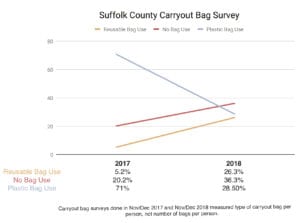
This turn of events could be a good sign for Long Island, whose municipalities are already struggling due to changes in the recycling industry. Though the Town of Brookhaven Green Stream Recycling facility has stopped operation since its contractor walked out on its contract with the town, when it was operating town officials said plastic bags were dangerous if they went through the facility, due to the way they could snag and constrain sorting mechanisms.
John Turner, a conservation policy advocate at Setauket Environmental Association said the legislation has had benefits on local recycling facilities as well, citing that at town municipal recycling facility machinery would be routinely clogged up by plastic bags.
Operation would need to be shut down every couple of hours to remove all the bags, costing the town $184,000 each instance to do the work and remove the bags.
The report comes on the heels of the county’s continuation to reduce single-use plastics. In February, legislators announced policy incentives aimed at restricting the sales of several plastics, some harmful to health and to the environment. In July 2018, a project called Strawless Suffolk started and looked for 100 seaside restaurants in Bellport, Greenport, Huntington, Northport, Patchogue and Port Jefferson Village to take a pledge to stop using plastic straws by Sept. 3, 2018.

